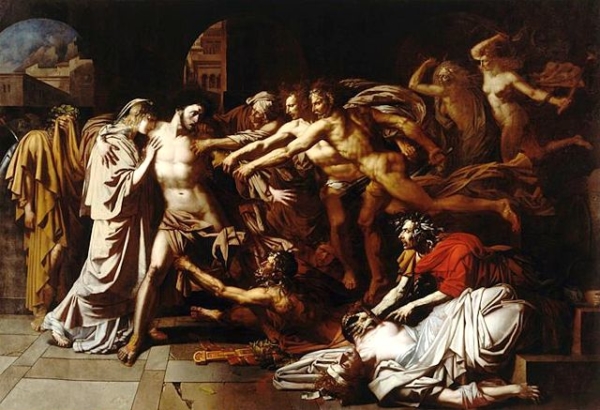Attention and The Enlargement of the Heart and Mind

When, in 1711, Joseph Addison reflected on what drove him to publish The Spectator, he wrote:
I shall be ambitious to have it said of me, that I have brought Philosophy out of Closets and Libraries, Schools and Colleges, to dwell in Clubs and Assemblies, at Tea-Tables, and in Coffee-Houses.”
His is a noble ambition. And a remarkable one, given the nature of thought and society in 17th century England. As Dr. Johnson said some years later,
“That general knowledge which now circulates in common talk was in his time rarely to be found…. His attempt succeeded; enquiry was awakened, and comprehension expanded. An emulation of intellectual elegance was excited, and from his time to our own life has been gradually exalted, and conversation purified and enlarged.”
Part of that purification was an honest look into man’s soul, an organ, if we can so call it, capable of the highest perfection of pleasures, but also of the most bewildering anguish.
Distraction
In Spectator Number 421, while commenting on a terrifying passage in Virgil’s Aeneid, he looks.
There is not a sight in Nature so mortifying as that of a Distracted Person, when his Imagination is troubled, and his whole Soul disordered and confused. Babylon in Ruins is not so melancholly a Spectacle.
The passage from the Aeneid to which he refers is translated by Dryden thus:
Like Pentheus, when distracted with his Fear,
He saw two Suns, and double Thebes appear:
Or mad Orestes, when his Mother’s Ghost
Full in his Face, infernal Torches tost:
And shook her snaky locks: He shuns the sight,
Flies o’re the Stage, surpris’d with mortal fright;
The furies guard the Door, and intercept his flight.
Aeneid, IV 469-73
The word distracted meant a something more intense to Addison and Dryden. We think of it as not paying attention. They understood that what prevents us from giving sustained attention is things that draw our minds away (from tractus: drag or draw). When something so overpowers us that we cannot recover our mind and reassert our attention, we have reached a state of madness.*
This sort of distraction leads to the disordering of the soul, a state once more frequently named than today.
Of such a state he insists, “There is not a Sight in Nature so mortifying…”
On loving our children
I cannot help but think of the distractedness of our school-children, in both the vague, conventional sense and the more refined sense used by Dryden and Addison. It is because we love our children that we should teach them how to pay attention and to purify and enlarge conversation. Consider, for example, that you have almost certainly skimmed this article rather quickly, and yet it contained one of history’s most vivid poetic passages from the master of Roman poets translated by one of the greatest of English poets.
If the passage entered your consciousness and feelings, you are a unique reader of blog posts and I commend you. Meanwhile, our children do not swim in water that lets them focus but are perpetually lured from one bait to the next.
It is not for ornamentation and influence that we practice Christian classical education but for the well-being of the soul. That requires purity, spiritual and natural, and enlargement, of the heart and of the mind. Those require a cultivated habit of attentiveness. May we love them enough to nourish this foundational virtue.
===
NB
* I suspect that one reason we have lost this understanding of distraction as madness is that we have exalted erotic love to the status of an unquestioned virtue while for them the value of a love that drove you mad was questionable.
Here is Virgil’s Latin:
Eumenidum veluti demens videt Agmina Petheus,
Et solem geminum, & duplices se ostendere Thebas.
Aut Agamemnonius scenis agitatus Orestes,
Armatam facibus matrem & serpentibus atris
Cum videt, ultricesque sedent in limine Dirae.
Andrew Kern
Andrew Kern is the founder and president of The CiRCE Institute and the co-author of the book, Classical Education: the Movement Sweeping America.











